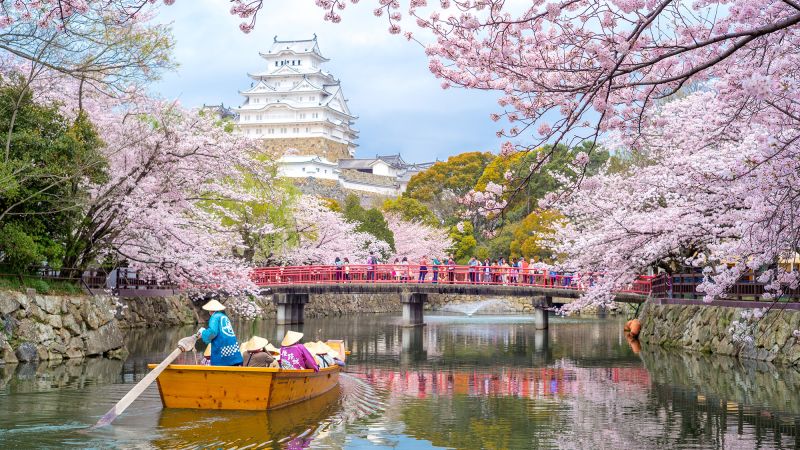CNN
—
The world is bigger and more connected than it has been before at any point in human history. Modern airplanes can whiz people from New York to Singapore or from London to Cape Town, journeys that would have taken weeks or months in previous generations.
But sometimes too much choice can be paralyzing. We’re in the era of FOMO — fear of missing out. Social media makes it seem like every person you’ve ever met is on an exotic vacation at any given time, so how do we choose which places to visit?
CNN Travel’s belief is that every place has reasons that make it worth visiting. However, our staff has curated this list of 25 destinations we think are particularly worth visiting in 2025.
Central Asia’s dramatic landscapes and unique urban centers are proving to be particularly alluring. Leading the way is Kazakhstan’s largest city, Almaty, which as we recently reported has become the region’s new “Capital of Cool.”
It’s one of those rare cities that truly has it all — great food, thriving nightlife, a fast-growing arts and culture scene and easy access to some of the world’s most stunning, untouched landscapes, thanks to its position at the base of the Tian Shan mountains.
Almaty’s metro stations are literally works of art, the perfect complement to its world-class museums including the Abilkhan Kasteev State Art Museum, which is filled with more than 20,000 artworks and the Tselinny Center of Contemporary Culture, which moves to new premises in 2025.
What to eat? Almaty is considered the birthplace of “Neo Nomad cuisine,” a blend of modern cooking techniques and traditional ingredients used by the nomadic people who reside in the country’s grasslands. Start your culinary journey at the stunning Auyl restaurant in the Medeu Valley south of the city,
Getting to Almaty is surprisingly easy, too. It can be reached via direct flights from Europe, Asia and the Middle East, while Kazakhstan offers visa-free entry to citizens of a long list of countries, including the United States, Canada, Australia and the United Kingdom. — Karla Cripps
Andaman and Nicobar Islands, India
Located far across the Bay of Bengal, this Union State of India has historically been so difficult to visit that most Indians have never been there. That may begin to change as the archipelago’s first scheduled international passenger flight — from Kuala Lumpur, Malaysia, to the islands’ capital of Port Blair — launched in late 2024.
Some who have heard of this area likely unfairly associate it with John Allen Chau, the erstwhile American missionary who attempted to evangelize to an uncontacted tribe in the North Sentinel Islands and was killed. But it’s incredibly difficult — not to mention illegal — to access North Sentinel from the Andaman and Nicobar Islands, and it would be a shame to write off these beautiful, friendly locals and the hospitality they offer.
The lucky people who have been often compare this string of islands to the Maldives — but before the big international brands showed up. Expect fresh juices, chai and breakfast parathas at locally owned cafes, barefoot beaches as far as the eye can see and an embarrassment of riches when it comes to water activities such as snorkeling and kayaking.
Barren Island, home to India’s only live volcano, is accessible via private boat, and Swaraj Dweep, just a ferry ride off of Port Blair, is a scuba diver’s dream.
Internet connectivity is also spotty at best in the archipelago, so take an opportunity to truly unplug — perhaps the biggest luxury of all. — Lilit Marcus
Bequia, St. Vincent and the Grenadines
“Everybody dreams ah fi go England, my dream’s to go Bequia,” are the opening lyrics to a soca song by artist Marlo Benn, celebrating the charm of this seven-square-mile island shaped like a lightning bolt.
And once you take a closer look at Bequia, pronounced Beck-way, it’s easy to see why this stunning destination of white sand beaches, year-round warm temperatures and lush tropical foliage would inspire such affection. Situated half an hour by air from the Caribbean island of Barbados, Bequia is one of the 32 islands that make up St. Vincent and the Grenadines. Its neighbor Mustique is undoubtedly more famous, but Bequia’s allure is undeniable.
In 2024, the island was hit by category 4 Hurricane Beryl, but Bequia has bounced back stronger than ever, with a surge in arrivals reported in September.
With miles of white sand, Princess Margaret Beach, named after the younger sister of England’s Queen Elizabeth II, is its most famous. It’s arguably its most beautiful beach, too, and definitely worth a visit. Over in nearby Friendship Bay, the Bequia Heritage Museum offers a complete look at the island’s history, including its long-standing whaling tradition.
Meanwhile, Bequia’s annual TradeWinds yacht event, which celebrates the culture and marine heritage of the Grenadines, draws in visitors from across the world each year. — Tamara Hardingham-Gill
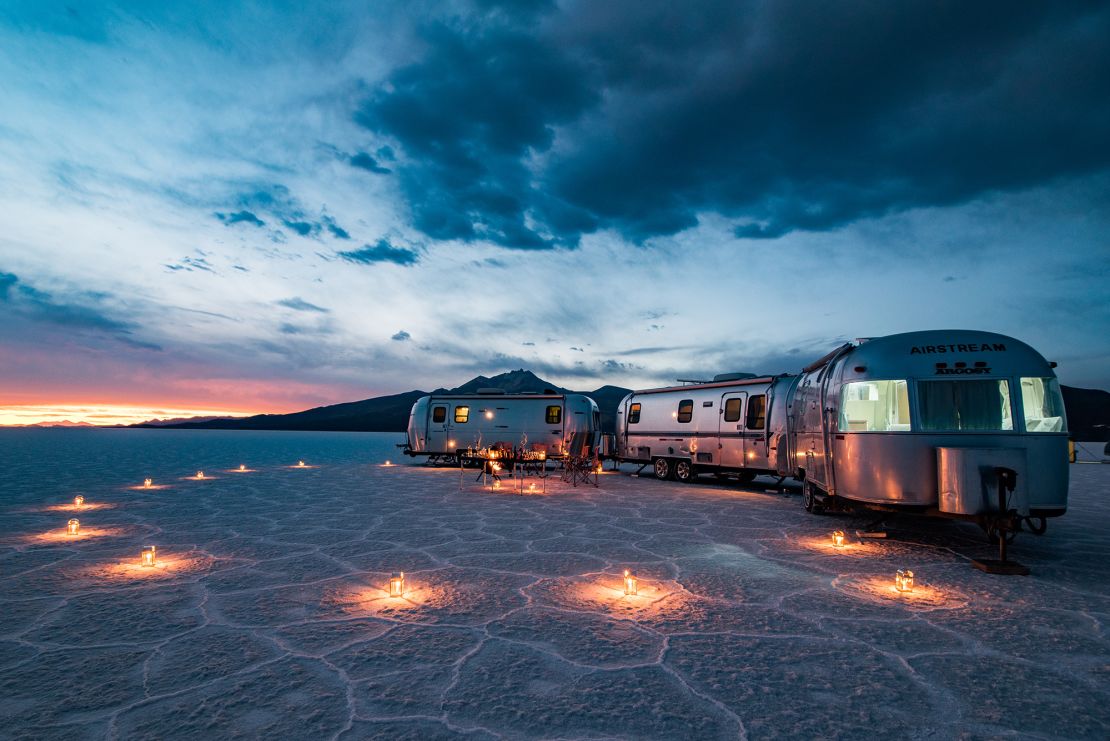
August 6 sees the 200-year anniversary of Bolivia declaring independence from Spain, under the leadership of Simón Bolivar, who became the South American country’s first president.
While plans for the festivities are currently under wraps, 2025 promises to be a year of celebration. While most visitors tend to tack a stay in Bolivia on to a longer trip to Peru, “the country is a destination in its own right,” says Journey Latin America’s Laura Rendell-Dunn. “You can easily spend two weeks or more exploring its many highlights.”
Capital La Paz’s restaurant scene is nipping at Lima’s heels with places such as Gustu, opened by Noma co-founder Claus Meyer and now run by Bolivian chef Marsia Taha. It’s winning plaudits around the world for its redefined traditional Bolivian food, including alligator with copoazu (a sweet Amazonian fruit) and llama with llullucha (an Andean algae staple).
Top-notch hotels such as Atix provide cushy digs in the 11,975 feet (3,650 meters) altitude of La Paz. In more rural areas, you’ll find barefoot luxury such as Airstream campers on the Salar de Uyuni salt flats.
Wherever you travel in Bolivia — to Lake Titicaca (bordering Peru in the Andes, it’s the world’s highest navigable lake), Tiwanaku (a nearby pre-Inca settlement) or UNESCO-protected Sucre with its Spanish colonial architecture — you’ll find luxury digs and, usually, fewer tourists than across the border in Peru. — Julia Buckley
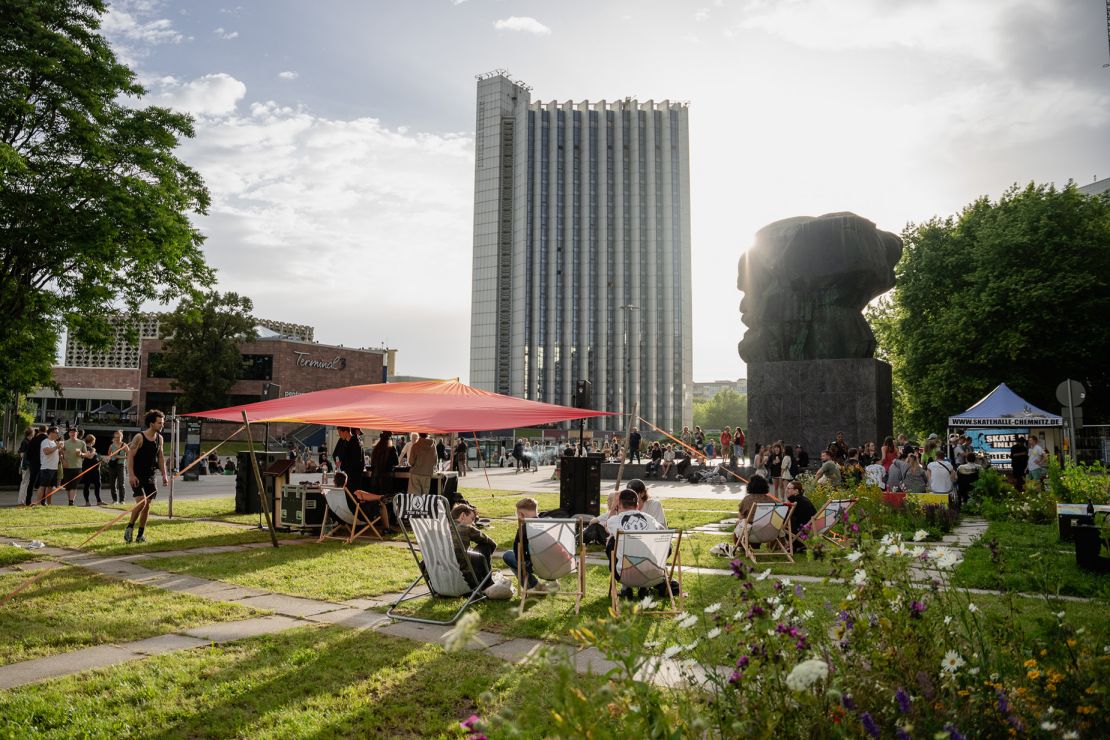
Once renamed Karl-Marx-Stadt, this east German city’s most famous landmark is a gigantic bronze head, the “second-largest bust in the world,” of the 19th-century philosopher. Erected in 1971, the imposing sculpture, a reminder of Chemnitz’s complicated past, has long been a top attraction for visitors. Yet Marx never actually visited the destination in his lifetime.
This year, the spotlight is shifting to its many other notable characteristics. Chemnitz shines as one of the 2025 European Capitals of Culture, along with Slovenia’s Nova Gorica. Once one of Germany’s richest cities, Chemnitz’s rich diversity is being celebrated in the form of jazz, indie and dance festivals, street art, vintage car rallies and exhibitions.
Visitors will also be able to take in Chemnitz’s eclectic architectural styles. The two-part town hall — made up of the Old Town Hall, or Altes Rathaus, built in the 15th century, and the Art Nouveau style New Town Hall, Neues Rathaus, erected in the early 20th century — is one of the finest examples.
Using the motto “C the Unseen,” officials are championing cultural projects such as the Purple Path, an art and sculpture trail that connects Chemnitz with 38 municipalities and communities, as well as highlighting the city’s commitment to transforming small public spaces into community hubs.
“The cultural program shows in an impressive way where the cultural heart of Europe will beat in 2025: in Chemnitz!” says the program’s managing director Stefan Schmidtke. — THG
All manner of footpaths, bridleways and byways crisscross the English countryside, many of which have been trodden by humans since ancient times. Access to them is enshrined in law passed just over 75 years ago. That means no matter who owns the land, there’s usually a signposted trail, and some of the most idyllic scenery in the world remains open to all.
England might not have the epic mountain trails found in some parts of the world, but just yards from almost every doorstep in the land, there’s a hedgerow path wending off into a green tunnel of overhanging trees or onto a romantically wuthering moorland.
Popular long-distance routes such as the Pennine Way (60 years old in 2025), Coast-to-Coast or South Downs Way get attention, but quieter corners of the country have their own waymarked trails. Indeed, anyone armed with an Ordnance Survey map can create their own.
Only visiting London? Check out the Capital Ring Walk — a sectioned trail that loops around the city’s suburbs and hidden wildernesses. Or head up the London Underground’s Metropolitan Line and sample the Chess Valley Walk from Chesham to Rickmansworth: 10 miles (16 kilometers) of mostly rural bliss with a Tube station at either end. — Barry Neild
Eswatani and Mpumalanga province, South Africa
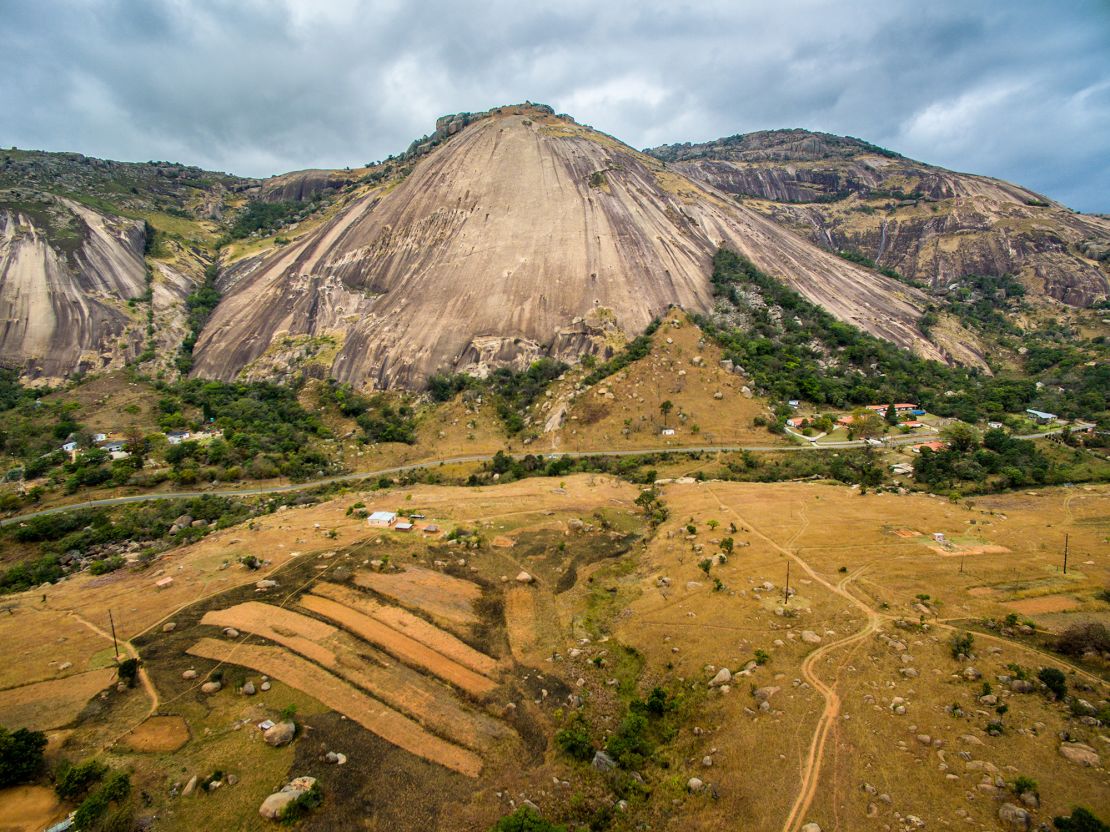
The tiny landlocked Southern African country of Eswatini — formerly known as Swaziland — has joined forces with the South African province of Mpumalanga and their neighbor Mozambique for a cross-border tourism initiative known as TRILAND 2024-2025.
The aim to build a tourism corridor through the southeast African region and while the US government currently advises against travel to Mozambique, its TRILAND buddies are visitor-ready.
Mpumalanga province is home to Blyde River Canyon Nature Reserve, the third biggest canyon in the world after the Grand Canyon and Namibia’s Fish River Canyon. What sets Blyde River apart, though, is that it’s richly blanketed in green subtropical vegetation. God’s Window is one of the most spectacular viewpoints on what’s known as the Panorama Route. Visitors often combine it with a trip to Kruger National Park, just over an hour’s drive away.
In Eswatini, Sibebe Rock is Africa’s answer to Australia’s Uluru, but without the crowds. Just 10 kilometers north of the capital Mbabane, it’s the largest exposed granite pluton in the world. It’s a challenging but rewarding hike, best done with a guide, following marked trails, and during the dry season (April to September). — Maureen O’Hare
Gdańsk, Poland
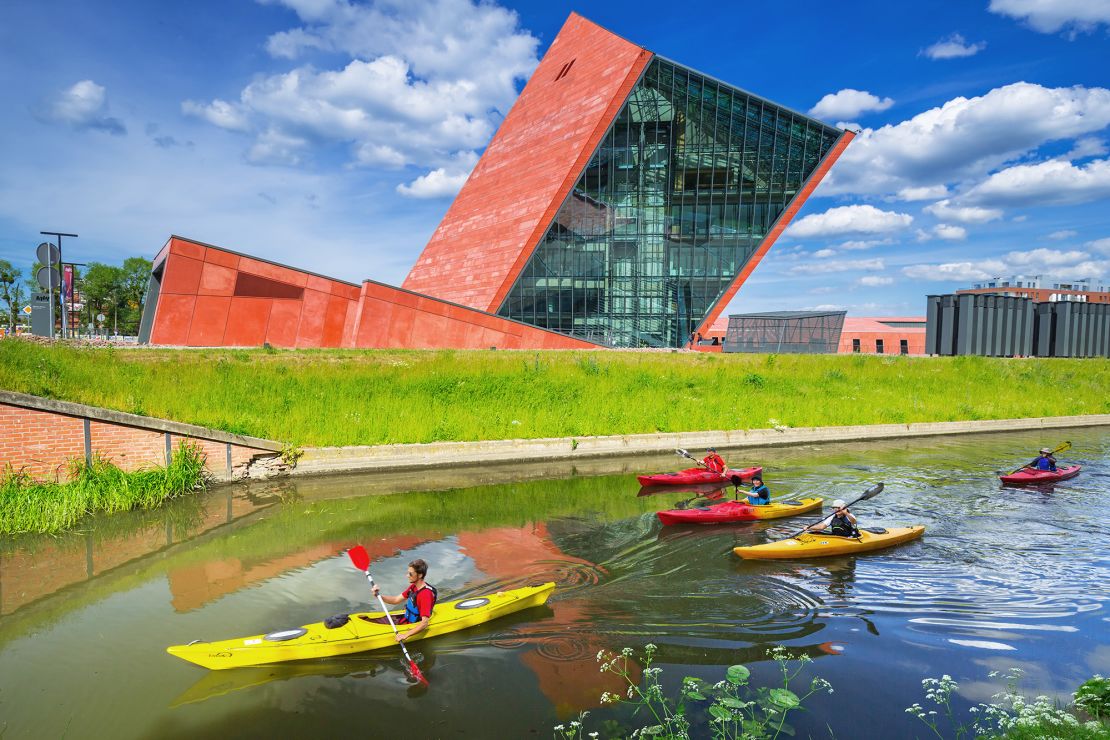
Gdańsk is perhaps most famous for being the location where World War II officially began, as well as the birthplace of the Solidarity movement, which played an important role in the collapse of communism in Poland. But there’s far more to this port city, located on the Baltic coast of the country, than its connection to defining moments in history.
Formerly known as Danzig, Gdańsk was almost completely rebuilt after the aforementioned war, emerging as one of Poland’s most beautiful and colorful cities. Perhaps fittingly, the Museum of the Second World War, a towering prism situated along the city’s waterfront, stands out as one of the most notable examples of its most stunning architecture. There’s also the 14th-century Artus Court and the Old Town’s St. Mary’s Church, thought to be one of the largest brick churches in the world standing at 78 meters (256 feet) high.
In 2023, the European Commission’s Report on the Quality of Life in European Cities ranked Gdańsk as one of the best cities in which to live, with the majority of its residents being satisfied with their living conditions.
This year marks a turning point for the city, with the completion of its “game-changing” port terminal, moving Gdańsk one step closer to its goal of becoming the main gateway to Central and Eastern Europe. — THG
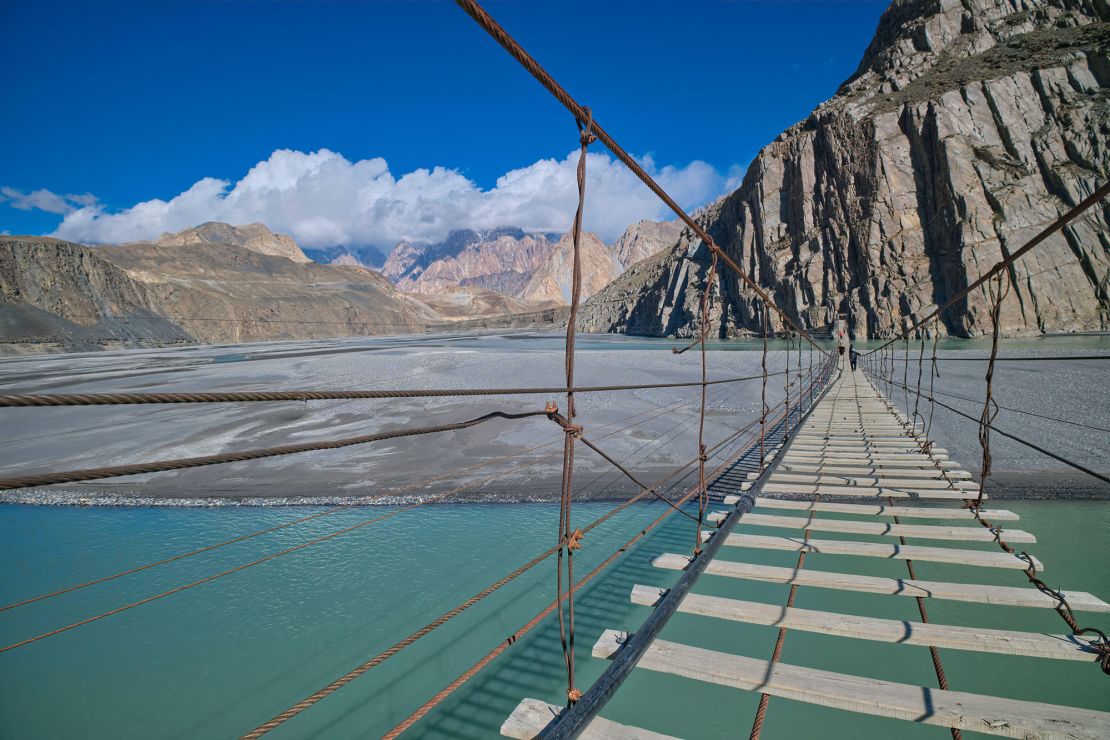
Back in the 1970s, Pakistan was an adventure travel hot spot, its sublime mountain scenery a key stop on the “Hippie Trail” overland route from Europe to South Asia. Decades of political instability put an end to that, but those epic peaks haven’t gone anywhere.
The Gilgit-Baltistan region in the Karokoram Mountains isn’t the easiest place to get to — flight schedules can be unreliable, roads can be blocked off seasonally — but it has more tantalizing peaks than a lemon meringue pie.
It’s home to five of the 14 “eight-thousander” peaks recognized as the world’s highest. That includes K2, the world’s second-tallest mountain but No. 1 in terms of difficulty and danger.
In terms of tourism and infrastructure, hiking in this region makes the Himalayas look like a traipse in Central Park.
Last year, Nepal banned solo hiking throughout that country, and this, too, is a place where going alone is not an option. It is, however, now accessible through trips organized by reputable global tour operators, including G Adventures and Wild Frontiers. Intrepid offers a 10-day, fully supported hike through the region known as “Little Tibet” starting at around $3,000. — MOH
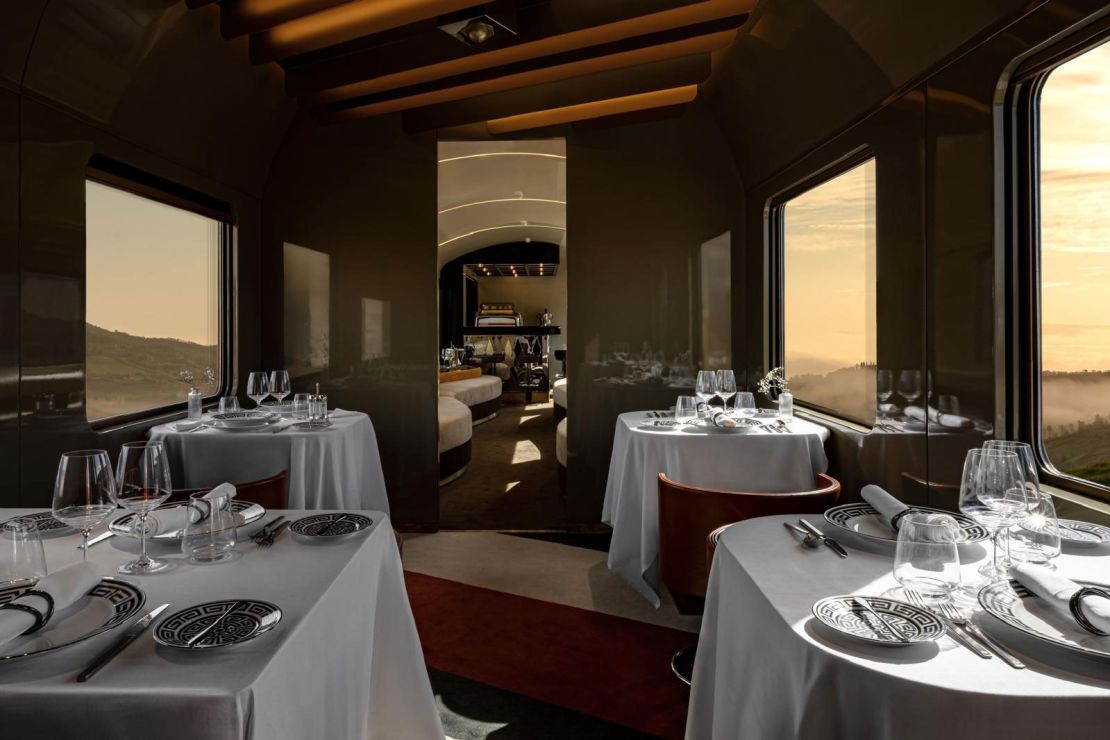
Luxury lovers are holding their breath for the launch of La Dolce Vita Orient Express, a super-luxurious train that’ll rattle around Italy from April, with eight itineraries. They’ll include the well-traveled paths of Venice and Tuscany to lesser-known parts of southern Italy, including Abruzzo and Basilicata (the Eternal Stones of Matera itinerary), as well as Sicily to Rome and back.
Those of us with shallower pockets will be relieved to know that we don’t have to spend five figures to ride the rails in style in Italy.
In December, state operator Trenitalia was ranked the best in Europe, scoring especially highly for its “travel experience.” Its high-speed Frecce trains connect major cities on a T-shape down the peninsula, often faster than flying. For a touch of dolce vita luxury, book the Executive class, a carriage with huge recliner chairs and butler service.
There are also the Treni Turistici Italiani (TTI) trains — often vintage — that have been reupholstered and redesigned to cater for a luxurious visitor experience. New routes for 2025 include a cross-border summer service from Milan to Saint-Raphaël on France’s Côte d’Azur, and a seasonal night train from Rome to Lecce in the sizzling southern Puglia region. — JB
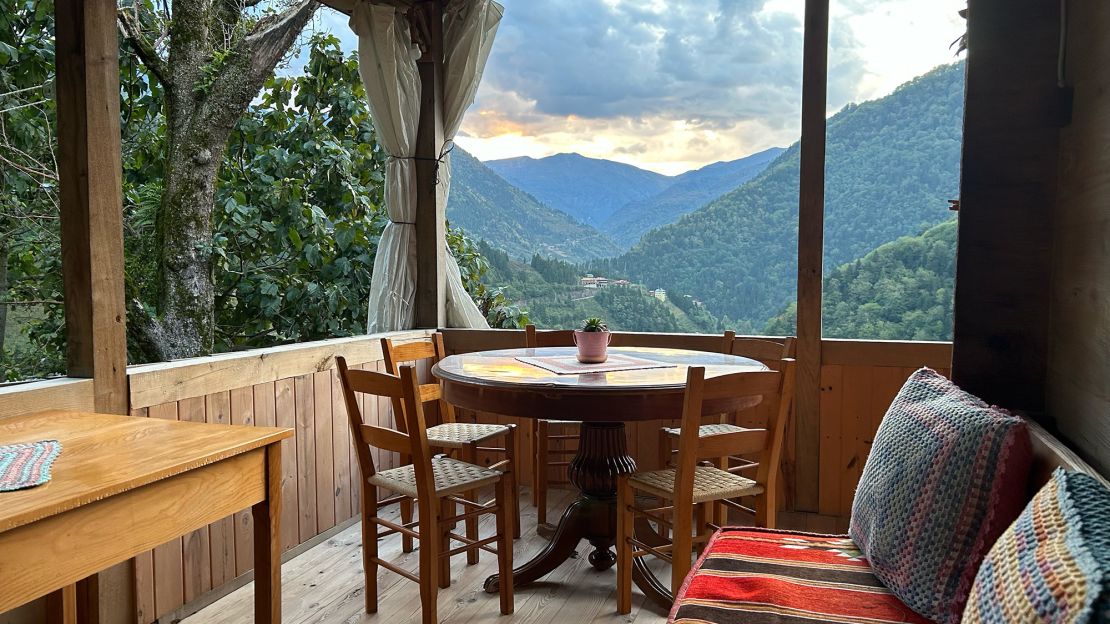
Tucked away in the northeast corner of Turkey between the Black Sea and Georgia lies this thousand-kilometer-long coastal mountain range. The Kaçkar Mountains’ mild, humid climate means this is an alpine idyll brimming with biodiversity.
In summer, the slopes are carpeted with wildflowers, making the area popular with hikers, while hazelnut fields and tea plantations hint at the region’s excellent produce.
This is also the home of the prized Caucasian honey bee, and hives are a common sight in this quiet and rural region, which has been a national park since 1994.
In October, visitors come to admire the spectacular russets and yellows of the fall foliage. The mountains’ craggy peaks rise to almost 4,000 meters (13,120 feet), and there are glaciers and glacier lakes in their upper reaches. There are also plenty of waterfalls and streams, with the 63-meter (207-foot) Maral Waterfall, one of the tallest in the country.
Skiing and heli-skiing are increasingly popular winter activities, although the tourism industry here is still in its infancy.
That’s set to change, though, as the opening of Rize-Artvin Airport on the Black Sea coast in 2022 has made the region much more accessible for international visitors. A flight from Istanbul takes just over two hours. — MOH
Osaka is playing host to Expo 2025 from April to October. As Japan’s second city is already mega-popular with international tourists, take advantage of the country’s excellent rail system to branch out and explore more of the Kansai region, which is comprised of 10 prefectures in south-central Japan.
In Nara, visit UNESCO-listed temples at dusk as the city’s famous deer come out to interact with humans — even eating food out of their hands and bowing in polite thanks.
In Hyogo prefecture, Kobe’s famous beef is available at every price point, from affordable croquette snacks out a deli window to Michelin-starred fine dining. But it’s also worth checking out the city’s emerging art scene and memorials to the earthquake that decimated the waterfront in 2015.
Then, fit in a visit to Himeji Castle, known as the “white heron” for its look of a bird in flight, before the ticket price escalates in 2026. — LM
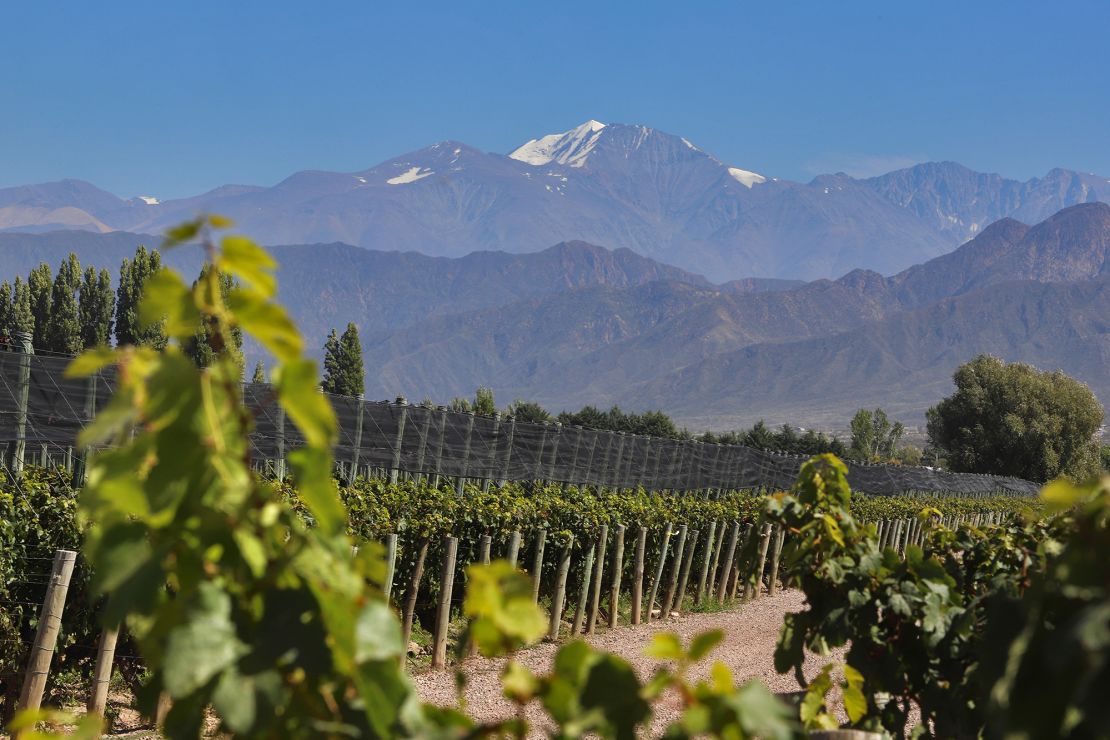
While Buenos Aires rightfully boasts about its dining scene, Mendoza might say, “Hold my glass.” Wine glass, that is. About 1,000 kilometers (620 miles) east of the famous capital city, Mendoza glories in its own deserved reputation as a paraíso del vino.
In all, the area is home to about 1,200 wineries, and Malbec is prized here. This cosmopolitan city is also known for its world-class restaurants and spas, tree-lined streets and sunny skies. The visuals here are stunning, with the towering Andes Mountains forming the backdrop to the city. If wine’s not your jam, you’ll have other ways to relax.
If you’re OK with crowds, consider visiting during the annual Fiesta de la Vendimia. Events throughout Mendoza province start in January and February and climax in March, when some 40,000 visitors come to sample local wine varieties. If you go then, you’ll be arriving in the Argentinian summer.
Visit the lovely General San Martín Historical Park, known for its 500 species of roses and Natural Science Museum. Or do a day trip to the soothing Cacheuta thermal springs — you can even take a budget bus and let someone else do all the driving. — Forrest Brown
It’s going to be an even bigger year than usual for country music in Nashville: The Grand Ole Opry is turning 100.
On November 28, 1925, radio station WSM debuted what was then called WSM Barn Dance, and the famous country music showcase was born. Now the longest-running radio program in history, the Opry has featured performers such as Hank Williams, Patsy Cline, Loretta Lynn, Willie Nelson and Dolly Parton as well as today’s rising stars.
The Ryman Auditorium, the “Mother Church of Country Music,” hosted the Opry for many years before the show moved to the current Opry House in 1974. Visitors can tour both venues. And there will be more shows on the Opry calendar than ever in 2025, including special birthday and anniversary events and select dates at the Ryman.
There’s more going on in Music City. A new, mixed-use development, Nashville Yards, is expected to open in 2025, anchored by a 4,500-person capacity music venue, The Pinnacle.
There’s also an effort under way to bring more Asian flavors to Nashville with its first Chinatown. That project, located southeast of downtown in Antioch, will feature a Pan-Asian supermarket expected to open this year as well as numerous restaurants and retail spaces to come. — Marnie Hunter
Nearly any South Pacific island you throw a dart at may feel like a suitably away-from-it-all speck on the map. But when it comes to less-trodden islands in this unparalleled part of the planet, it’s hard to compare any place with Niue.
The tiny self-governing Polynesian island in free association with New Zealand (residents have New Zealand passports) lies roughly between Fiji and the Cook Islands. Since 2022, 100% of Niue’s territorial waters have been designated a multi-use marine park, including a vast no-take zone that’s an important habitat for grey reef sharks and the endemic katuali sea snake.
Humpback whales migrate, give birth and frolic with their calves just offshore from the 100-square-mile island from late June to October, when visitors have the opportunity to snorkel and sometimes scuba dive with them in waters that regularly push 160 feet of visibility (since Niue has no surface water flowing off it, the surrounding ocean is exceptionally clear).
Even visitors who stay on dry land at spots like Scenic Matavai Resort regularly see humpbacks passing offshore during the season (the hotel’s “whale bell” rings to announce their presence).
Magic abounds above the water’s surface, too. “Sea tracks” called Hala Tahi lead from the island’s villages to the cliff’s edge and down to the reefs below, where fascinating limestone caves and chasms and pristine swimming and snorkeling spots said to have been a favorite with Niuean royalty await. Home to just 1,700 people (roughly 600 of whom live in the tiny capital, Alofi), Niue is also a stargazing paradise as the world’s first country to receive Dark Sky designation.
Most visitors arrive on Air New Zealand flights from Auckland (3.5 hours) that come and go several days a week, keeping visitor levels low. — Terry Ward
Nuuk, Greenland
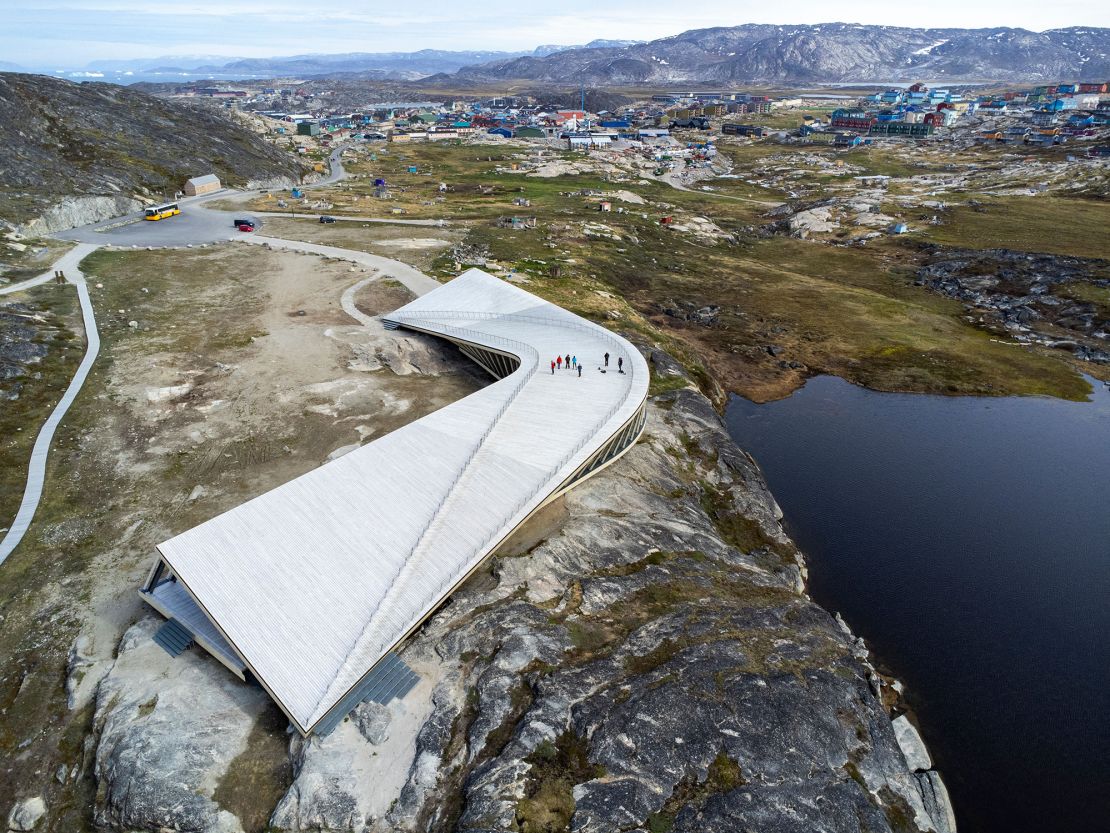
The rugged landscapes and incredible wildlife of Greenland recently got a little more accessible, thanks to the opening of Nuuk International Airport. This revitalized aviation hub in Greenland’s capital is home to a 2,200-meter (7,217-foot) runway, allowing larger aircraft to land in the Arctic-based Danish territory for the first time. This summer, United Airlines will operate the first direct flight from the US to Greenland, landing in Nuuk.
The city is a great jumping-off point for exploring the rest of Greenland via boat or plane — from absorbing the culture of the local Inuit people at the Icefjord Centre in Ilulissat, to marveling at icebergs and considering the impact of the climate crisis at Disko Bay. But Nuuk isn’t only a gateway to Greenland. City highlights include the history-filled National Museum and Archives, and the striking Sedna sculpture on the shoreline, a tribute to the Inuit goddess of the sea.
As Greenland’s visitor numbers grow, travelers can help embrace sustainable tourism practices by employing local guides — whether that’s for a locally run walking tour of the city, or to visit neighboring Nuup Kangerlu, a vast fjord that offers humpback whale sightings amid gorgeous mountain surroundings. — Francesca Street
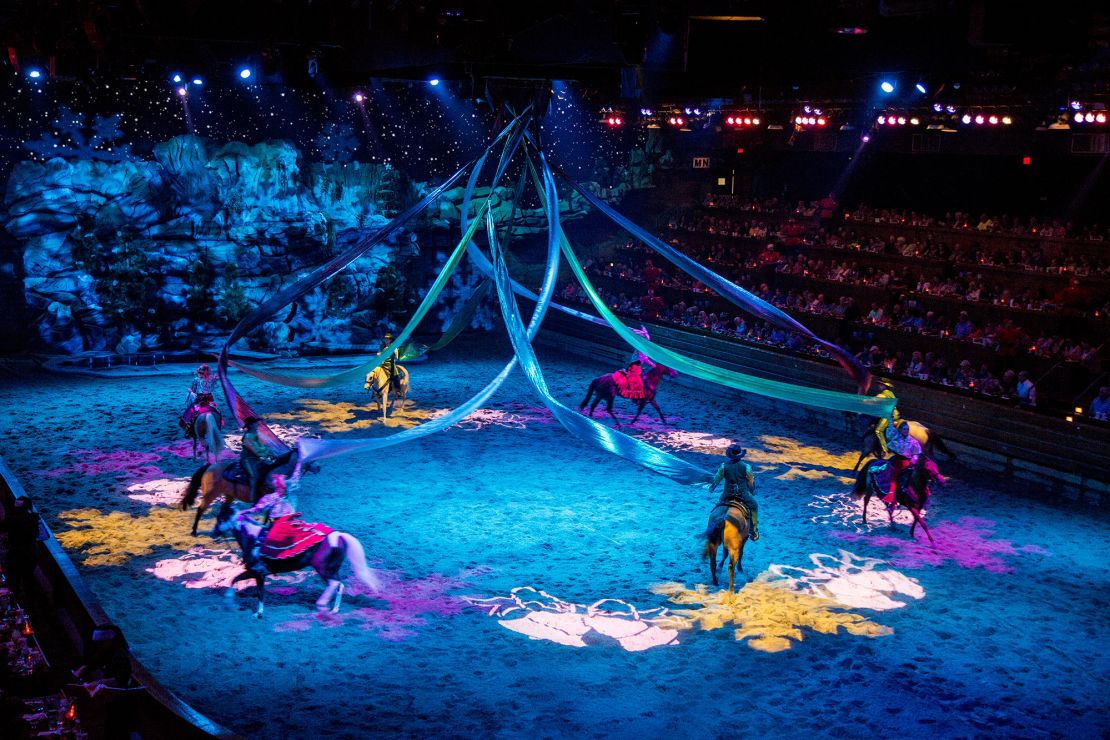
Rugged terrain, waterfalls, river rapids, caves and bluffs — they’re not the kinds of geographical features folks usually expect in the south-central United States. But those features and more await visitors to the gorgeous Ozark Mountains of Arkansas and Missouri.
The region is best known for the Americana entertainment hub of Branson (including Dolly Parton’s Stampede) and the Silver Dollar City amusement park (with a new Spring Exposition festival in 2025 — and don’t miss the recently revamped, immersive Fire in the Hole family coaster). Those are great, for sure, but they’re just the start.
One of the Ozarks’ best-kept secrets is the Johnny Morris Conservation Foundation, a privately owned, paid-entry nature and history reserve. One of its highlight attractions is Dogwood Canyon Nature Park in Lampe, Missouri. It holds fishing holes, historic chapels and bridges, biking and hiking trails plus a tram tour to visit free-roaming herds of elk and bison.
In Arkansas, Eureka Springs is a funky getaway with fun restaurants and places to stay, and it’s emerged as something of an oasis for the LGBTQ community. Go floating or fishing at Withow Spring State Park not far from the university town of Fayetteville. For a stunning drive, consider the Mount Magazine Scenic Byway. — FB
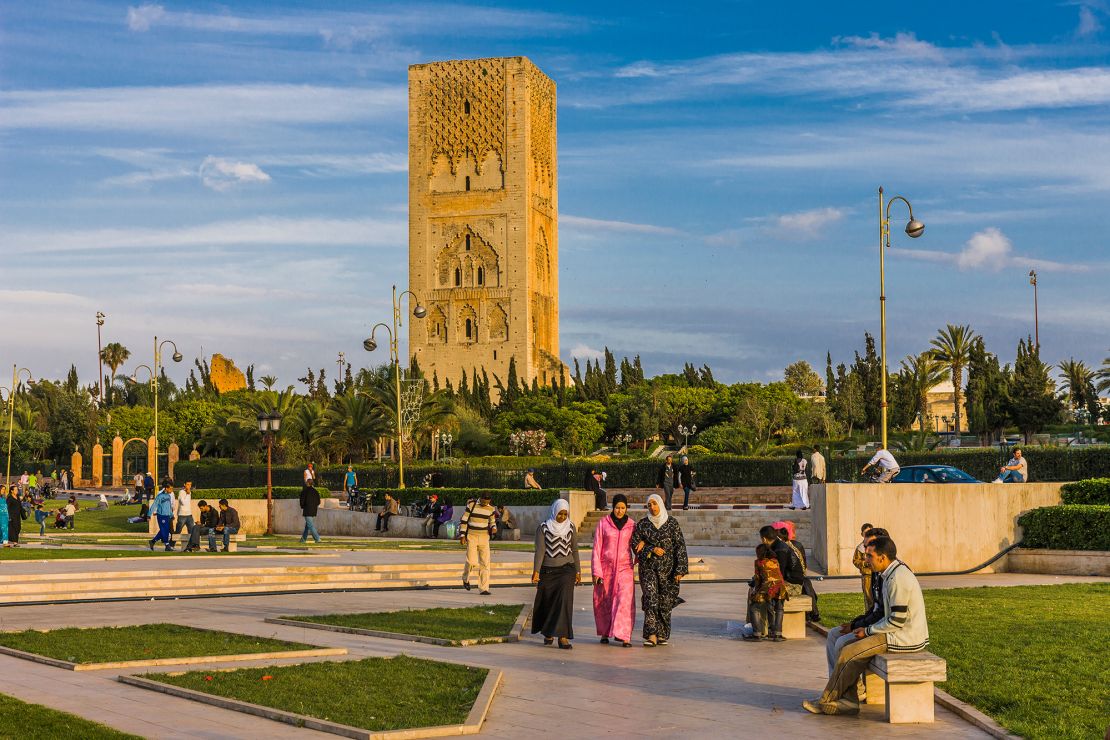
Marrakech, Essaouira, Fes, even Casablanca…. While Morocco is perennially high on many people’s travel lists, one place that rarely features is Rabat, the modern capital. But all that looks set to change in 2025 with the new Four Seasons Hotel Rabat at Kasr al Bahr, which opened in October 2024, and the opening of the Royal Theater, designed by the late, great starchitect Zaha Hadid.
Countrywide, the tourism industry is recovering from the devastating earthquake that hit the Atlas Mountains in September 2023. There was a 20% increase in travelers to Morocco year-on-year in 2024 (from figures released in November), and 2025 looks to be even more successful, with new flight routes including Los Angeles-Casablanca from Royal Air Maroc, and Newark-Marrakech from United Airlines. Waldorf Astoria is another brand opening up its doors — its 2025 Tangier property will be its first foray into the country.
For sports fans, the Africa Cup of Nations soccer tournament will take place in December — while the venues have not yet been announced it’ll be a proud moment for Morocco, whose national team became the first African squad to reach the semifinals of the FIFA World Cup, in 2022. Local tour operators like Inclusive Morocco will help you see the best of the country. — JB
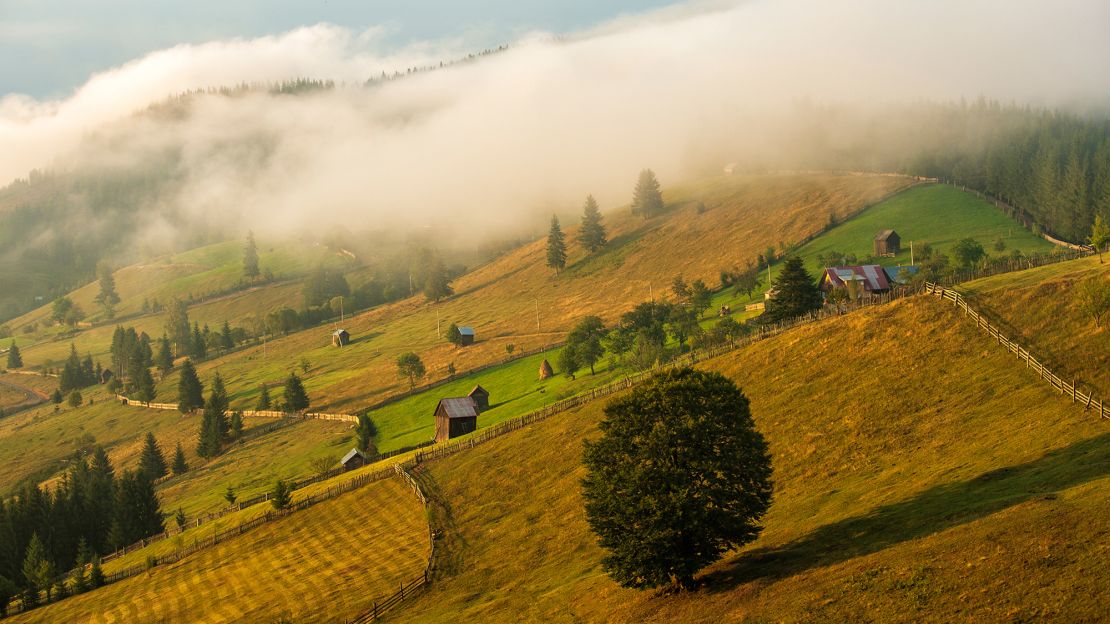
There aren’t many places left in Europe that still have that undiscovered vibe, but Romania comes close. That’s a gift in these days of overtourism — for here’s a country that has everything, from the beach resorts of the Black Sea to the drop-dead gorgeousness of the Carpathian Mountains, and is reputedly trying to grow visitor numbers sustainably.
Yes, there’s the Dracula thing at Bran Castle, but for other gothic medieval treats in wider Transylvania and beyond, try Timișoara, Cluj Napoca, Sibiu, Brasov and Sebes. Capital Bucharest has a charming Old Town, now a bit overloaded with tourist bars and restaurants, but the city’s recent history is still a major draw. The jaw-dropping excess of communist-era dictator Nicolae Ceaușescu’s luxurious former home and his vast Palace of the Parliament (the world’s heaviest building) are worth exploring.
They contrast with the extreme hardships he forced on the country’s people, charted in the diminutive but essential Museum of Communism. A more idyllic past can still be found in the Romanian countryside. There’s probably no better way to explore this than the recently launched Via Transilvanica, an 870-mile (1,400-kilometer) hiking trail through rural landscapes and villages seemingly frozen in time. — BN
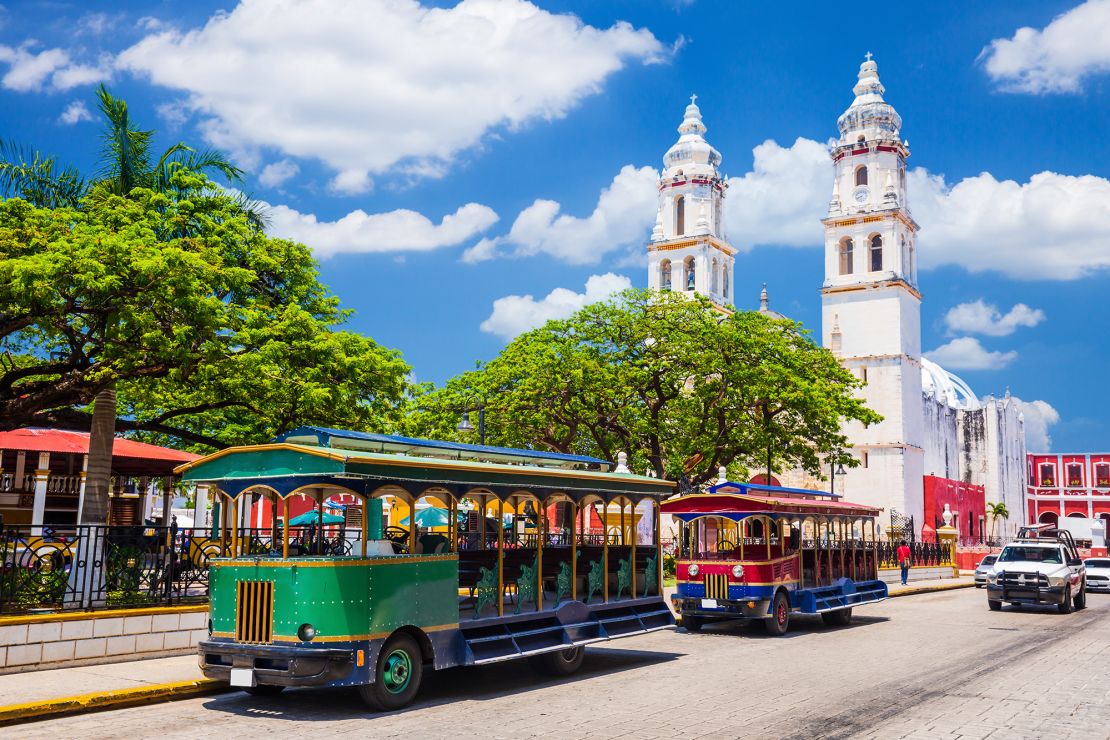
If you’ve done the big cities (Mexico City, Guadalajara), the resorts (Cabo, Cozumel) and the expat hangs (San Miguel de Allende, Lake Chapala), you might want to visit a different kind of Mexico. That’s where San Francisco de Campeche comes in.
The capital of Campeche state, this harbor city of about 250,000 is located on the western side of the verdant Yucatán Peninsula. Campeche is one of just two states in Mexico with the US State Department’s top safety rating, and the city occupies that sweet spot of having some tourism infrastructure without being “discovered” yet.
Seafood lovers should appreciate offerings such as pompano in tin foil, Pan de Cazón (Dogfish Bread) and various shrimp dishes that have a Caribbean flair. Architecture and history enthusiasts will be enthused — the old walled Historic Fortified Town is a UNESCO World Heritage site. Bastions (fortifications) and colonial churches abound. In the outdoors, the beaches of nearby Sihoplaya and Seybaplaya and the cenotes (freshwater sinkholes) make for splashy fun. And don’t miss the Mayan ruins and tropical forests at Calakmul.
Getting around the city might be easier in 2025 if the light rail system goes into operation in April as planned. — FB
This English-speaking West African country has plenty to offer those adventurous enough to make the trip, although getting there isn’t easy. There are connections via Brussels and Casablanca, but new airline Air Sierra Leone has yet to deliver direct flights to London promised for late 2024.
Tourism is still in its early stages 20 years on from civil war and a decade after a major Ebola outbreak. That means a county unspoiled by excessive visitors and still rough around the edges. Beaches like those at the Turtle Islands, Bureh and River Number Two have crystal waters and white or golden sands. Capital Freetown has markets, museums and, in the ruins of Bunce Island, a poignant tribute to the victims of the slave trade who passed through. Inland rainforests offer hiking and chimpanzee encounters.
“Sierra Leone is hands down one of the safest and friendliest countries in Africa,” says travel blogger Helen Davies, AKA Helen in Wonderland, just back from leading a tour in the country. “The people here are just beautiful, with an energy that’s warm, welcoming and absolutely infectious. The country is rugged, raw, and unapologetically real, and that’s exactly what makes it the perfect place for an intrepid traveler.” — BN
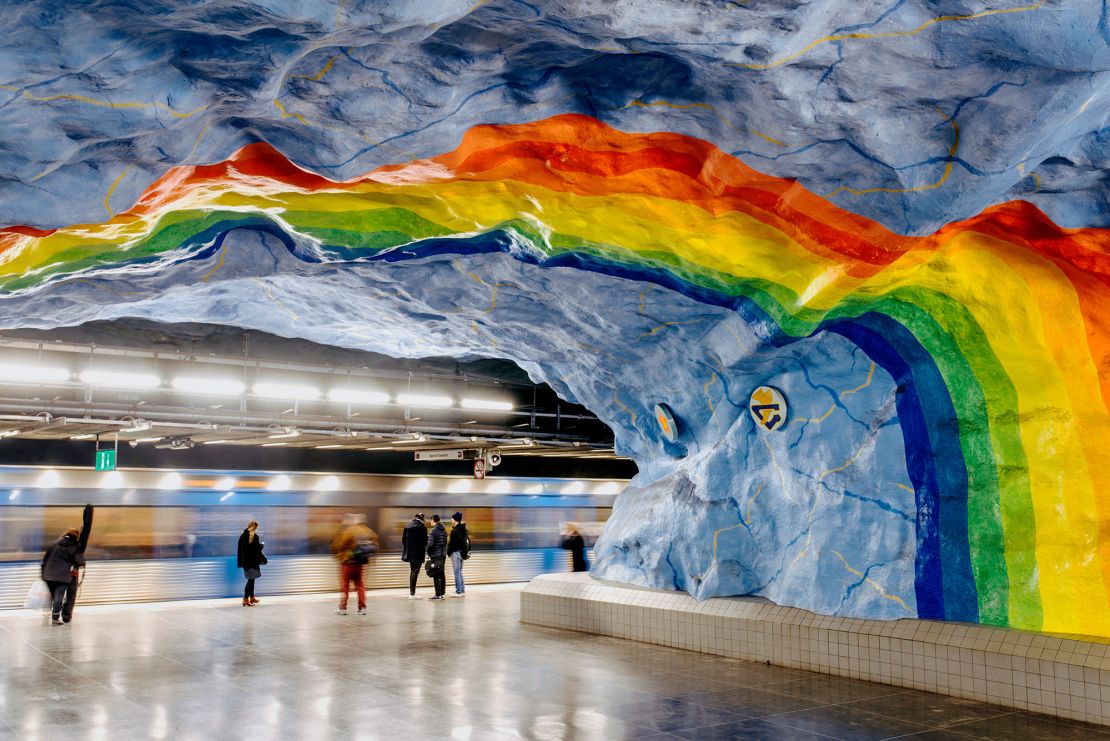
Wandering around the city of Stockholm, travelers will be struck by the fresh air, vast open skies and constant watery views — the Swedish capital is made up of 14 islands, connected via bridges and ferries.
This island-based city is also part of the wider Stockholm outer archipelago, comprising some 30,000 islands. Visitors staying in downtown Stockholm can easily hop on a short ferry to nearby islands like Fjäderholmarna, where beautifully preserved historic architecture and more watery views await.
But for those feeling adventurous, the city of Stockholm recently opened a new 270-kilometer hiking trail crisscrossing the Stockholm outer archipelago. An accompanying website helps travelers map out routes.
Back in the city center, visitors can learn more about Sweden’s maritime history at the Vasa museum, home to a preserved 17th-century wreck. Meanwhile, the outdoor Skansen museum offers insights into Sweden’s architectural and cultural history, while the ABBA Museum is interactive, pop-based fun.
After a day hiking or sightseeing, don’t forget to embrace the Swedish tradition of fika (AKA taking a break to enjoy a hot drink and a pastry) and sample the cinnamon buns at bustling Café Saturnus or award-winning Robin Delselius Bageri. — FS
Taupō, New Zealand
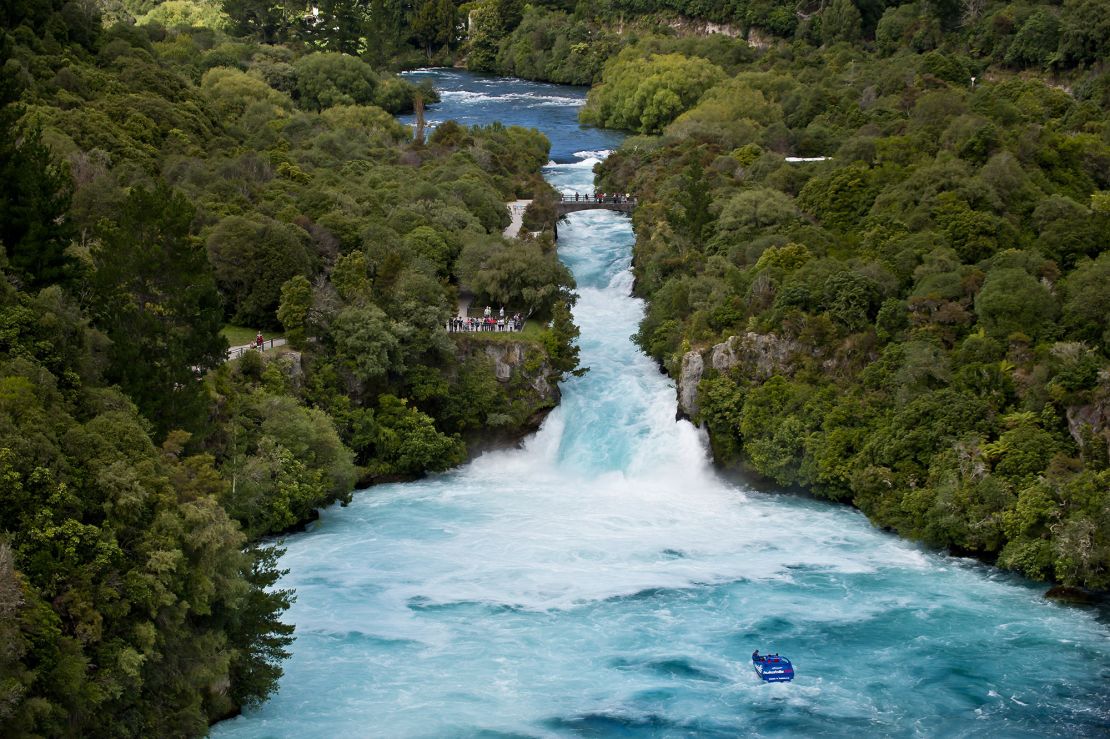
New Zealand’s South Island often gets more attention when it comes to natural beauty. But travelers heading to the North Island in search of cinematic landscapes need look no further than Taupō.
Not to be missed are the lake’s Ngātoroirangi Mine Bay Māori Rock Carvings, which include a 14-meter bas-relief created by famed artist Matahi Brightwell representing the face of his ancestor, Ngatoroirangi.
Just a few kilometers from Taupō is Huka Falls, said to generate enough power to fill an Olympic-sized swimming pool in just 11 seconds.
In terms of food, the town’s culinary scene is gaining increased recognition — it recently wrapped up its inaugural Treats of Taupō food festival. Which is why we almost feel guilty sharing this fun fact: Taupō is home to what might just be the world’s most unusual McDonald’s, where visitors can chow down on their Big Macs while seated inside a decommissioned WWII-era Douglas DC-3 airplane.
Where to stay? Taupō’s historic Huka Lodge turned 100 in 2024 and has just been given a makeover. Set to reopen in March 2025, this luxury property that started out as a fishing camp on the banks of the Waikato River features just 20 suites and two cottages. — KC
Vancouver Island, Canada
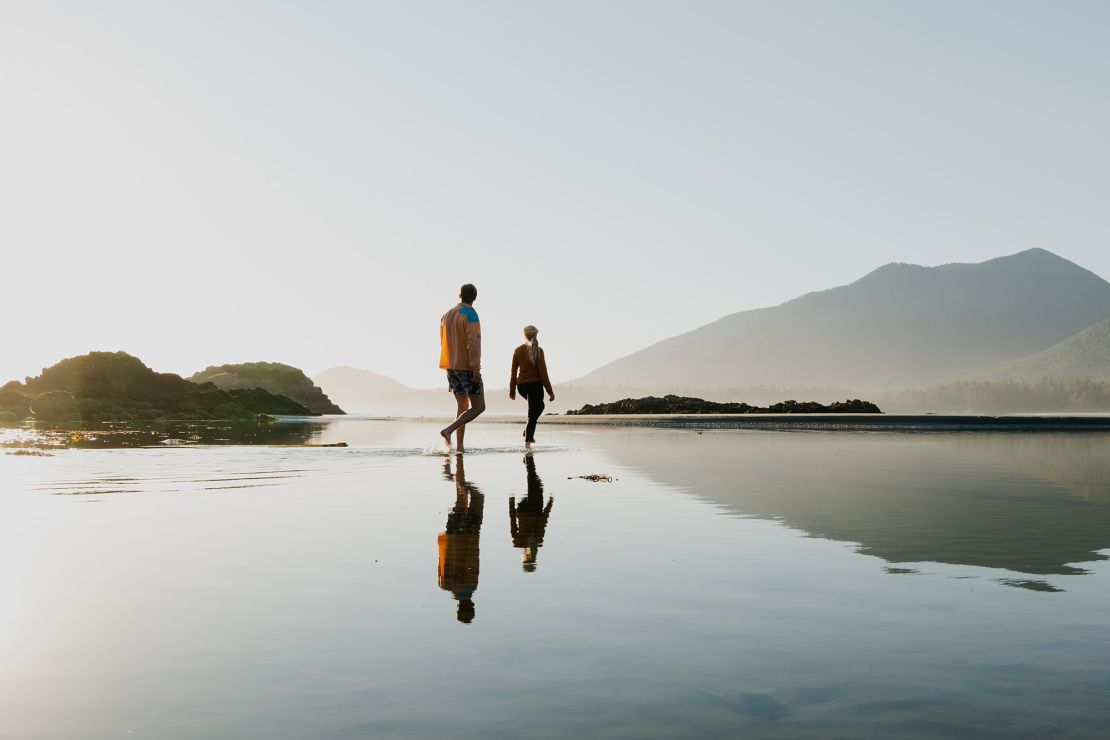
Wild, untamed landscapes and explosions of manicured blossoms are just some of Vancouver Island’s natural draws.
The 285-mile-long island, located in the Pacific about 60 miles west of Vancouver, is home to the rugged Pacific Rim National Park Reserve on its west coast. Experienced backpackers might tackle the park’s West Coast Trail. Or for more creature comforts farther north around the park’s Long Beach Unit, lodges dot the coast between the laidback towns of Ucluelet and Tofino. They serve as jumping-off points for wildlife expeditions, rainforest hikes or braving the legendary surf.
One remote lodge, a floating resort previously operated as the Tofino Wilderness Resort on Quait Bay north of town, was purchased in 2022 by Ahousaht First Nation. It is expected to reopen in June 2025 with a new name and newly appointed guest rooms and public spaces.
And for the spa-inclined, Kingfisher Pacific Resort & Spa in Courtenay on the island’s east coast is debuting a six-cave experience featuring a different therapy in each — alongside visuals to enhance the circuit.
Butchart Gardens offers sensory stimulation in flower form. The 55-acre wonderland near BC’s provincial capital of Victoria on the southern coast features a magical sunken garden, a rose garden and other displays, plus a top-notch afternoon tea, adding sweets and savories to the visual feast. — MH
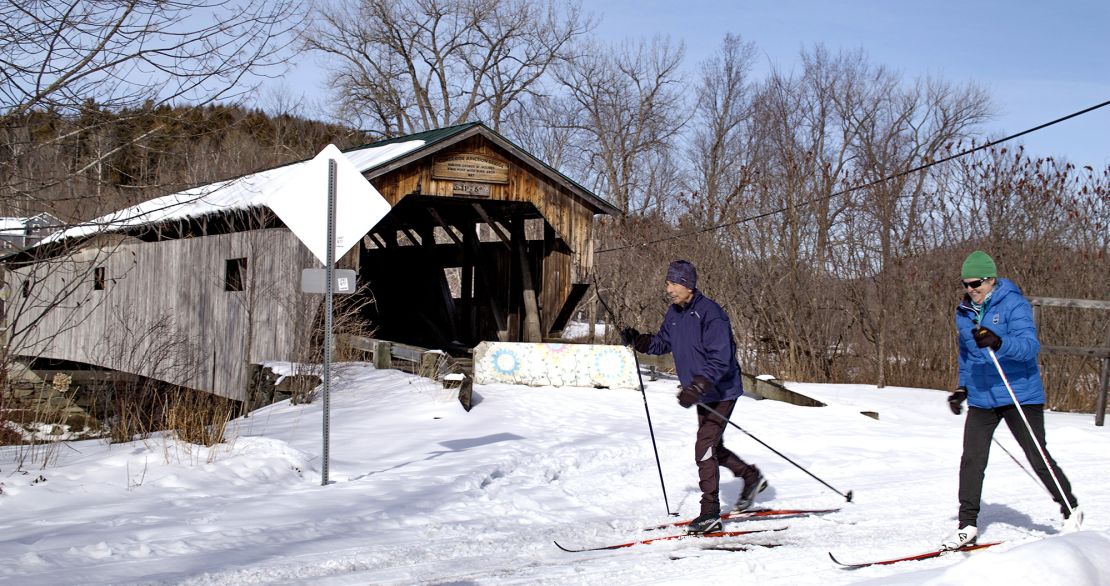
Wildflowers, verdant hills, trees ablaze with red, orange and yellow foliage and blankets of pristine snow. Vermont’s four-season rail trails offer visitors a chance to experience the state’s postcard-perfect landscapes all year long.
Walking, cycling, horseback riding, snowshoeing and Nordic skiing are all possible along the state’s four railway-turned-pedestrian thoroughfares, where non-motorized traffic moves along crushed stone pathways that connect towns and villages across the state. In the winter, snowmobiles are also allowed.
The state’s newest such path, the Lamoille Valley Rail Trail, has had a bumpy start. Devastating flooding in July 2023 caused an estimated $11 million worth of damage to the $31 million trail, delaying its grand opening by a year. It sustained some damage again in July 2024 flooding, but the 93-mile trail is nearly fully open — save for a handful of miles close to the trail’s southern end and one short detour. The longest rail trail in New England, Lamoille Valley Rail Trail stretches from Swanton in the northwestern corner of the state to St. Johnsbury in the Northeast Kingdom.
There are plenty of spots to stop along the way — maybe for a beer or a bite in Morristown, where a variety of breweries, restaurants and shops are ripe for exploration, or to peek at the 150-year-old train station in Danville. — MH

